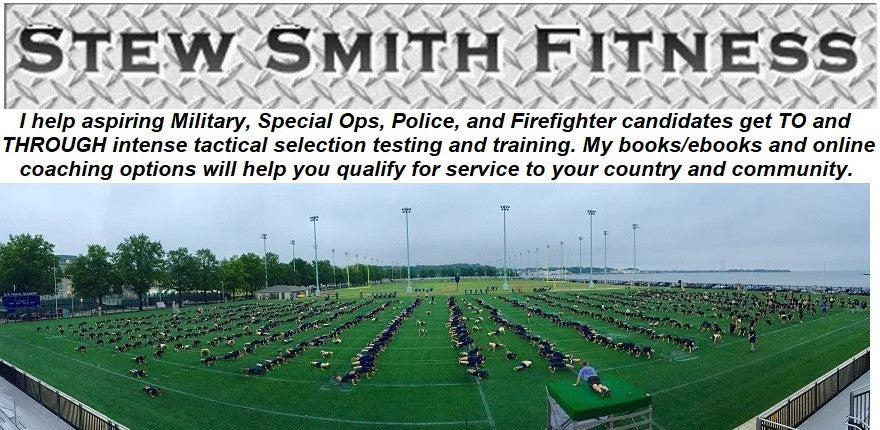I get this email often from young recruits training for such programs as Navy SEAL, SWCC, Rescue Swimmer, Air Force PJ, and others. My answer is real simple – STOP PRACTICING UNDERWATER SWIMS ON YOUR OWN! Here is a sample email as well as an answer that I hope will save some lives of those who read it:
Stew - Right now I'm having a difficult time holding my breath underwater for more than 30 seconds. Is there anything you can recommend? Also, my desire is to go Navy SWCC.
I do not recommend practicing holding your breath for many reasons:
1 - If done underwater you could pass out and die no matter WHO you are!
2 - Every second you hold your breath longer than a normal breathing cycle is keeping oxygenated blood from your brain. Not healthy to do for extended periods.
3 - You really just need to pass underwater swim test - learn the stroke so you swim fast with the least amount of effort. I do 25m pool length in 3-4 strokes. 50m is easier when you KNOW how to swim. see video link.
Never swim underwater without a life guard or buddy at the pool. People die every year practicing this alone - AND even with guards nearby see related articles:
http://www.lifesaving.com/case_studies/case09/case09.htm
http://www.swimmingcoach.org/articles/9903/9903-1.htm
Yes, there are tough tests in the military that require an underwater swim. Even at SEAL training where the test is 50m without a kick off the first wall plus a forward flip before you start, NO ONE in my BUDS class failed that test. At that time we had 120 people in the class who took and passed that underwater test. We only graduated 28 of them. There are bigger issues to train for like running, swimming, pull-ups, and many more that will get you versus underwater swimming.
One last thing, NEVER hyperventilate prior to underwater swimming. In fact, the Navy will not allow it for the test - so do not practice it. One big inhale / exhale and one last inhale are all you get prior to swimming underwater. The Navy will teach you this. No need to practice it prior to training.
In the big picture of your training, underwater swimming should be something you focus on minimally by learning superior underwater swimming techniques. BUT do not push your personal envelope to pre-pass this test on your own without trained medical professionals on the pool deck with you.
